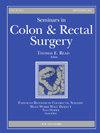Watch and wait in early onset rectal cancer patients: A review of the literature
IF 0.5
Q4 SURGERY
引用次数: 0
Abstract
Introduction
Despite the general decline in rectal cancer diagnoses, early onset rectal cancer (EORC) diagnoses are increasing. Meanwhile, Watch and Wait (WW) surveillance for patients with complete clinical response to neoadjuvant therapy is gaining popularity. While outcomes for WW are good, there may be hesitancy enrolling younger patients. This review aimed to evaluate literature examining WW in EORC patients.
Methods
A systematic literature review was conducted and full-text, peer-reviewed manuscripts were assessed for eligibility. A single study, “Watch and Wait After a Clinical Complete Response in Rectal Cancer Patients Younger than 50 Years,” by Bahadoer et al. (2021) was identified.
Results
The study included 199 EORC patients followed for a mean of 3.2 years. Compared to older patients, EORC patients had higher overall survival, and similar rates of disease-free survival and local recurrence.
Discussion
The results of the identified study are encouraging, however, there is a paucity of data on WW in EORC patients, including not only clinical outcomes but surveillance compliance and barriers that might inform treatment decision-making. Decisions regarding WW in EORC patients should be made on an individual case after thorough discussion with patients.
观察和等待早发直肠癌患者:文献综述
尽管直肠癌诊断率普遍下降,但早发性直肠癌(EORC)诊断率正在上升。与此同时,观察和等待(WW)监测对新辅助治疗有完全临床反应的患者越来越受欢迎。虽然WW的结果很好,但招收年轻患者可能存在犹豫。本综述旨在评价有关EORC患者WW的文献。方法进行系统文献综述,并对全文、同行评议稿件进行合格性评估。Bahadoer等人(2021)的一项研究“观察并等待50岁以下直肠癌患者临床完全缓解后”得到了确认。结果本研究纳入199例EORC患者,平均随访时间3.2年。与老年患者相比,EORC患者的总生存率更高,无病生存率和局部复发率相似。该研究的结果令人鼓舞,然而,关于EORC患者WW的数据缺乏,不仅包括临床结果,还包括可能为治疗决策提供信息的监测依从性和障碍。EORC患者的WW应在与患者充分讨论后根据个案作出决定。
本文章由计算机程序翻译,如有差异,请以英文原文为准。
求助全文
约1分钟内获得全文
求助全文
来源期刊

Seminars in Colon and Rectal Surgery
SURGERY-
CiteScore
0.60
自引率
0.00%
发文量
43
期刊介绍:
Seminars in Colon and Rectal Surgery offers a comprehensive and coordinated review of a single, timely topic related to the diagnosis and treatment of proctologic diseases. Each issue is an organized compendium of practical information that serves as a lasting reference for colorectal surgeons, general surgeons, surgeons in training and their colleagues in medicine with an interest in colorectal disorders.
 求助内容:
求助内容: 应助结果提醒方式:
应助结果提醒方式:


